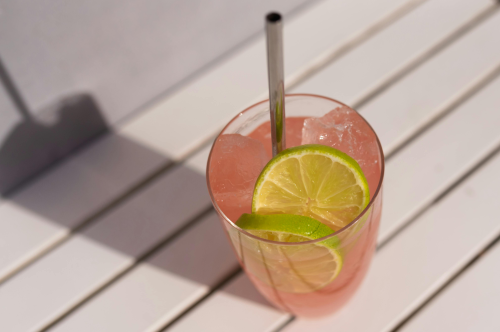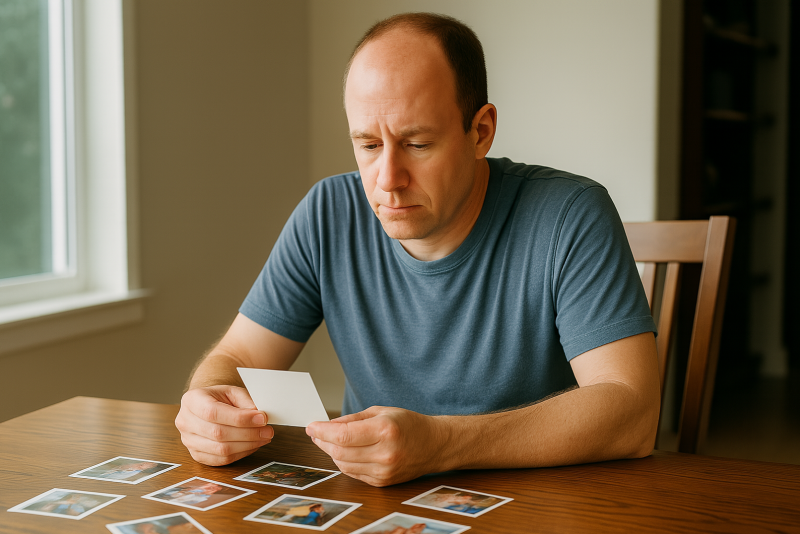
Wondering if alcohol is becoming too much a part of your routine? This gentle, thoughtful article helps you reflect without shame and explore healthier habits for emotional well-being.
By Sergio Toledo
Editor-in-Chief, Heed to Heal
For many people, alcohol is woven into everyday life. It’s there at dinners, celebrations, quiet nights on the couch. At first, drinking may feel like an occasional pleasure — a small reward after a long day, a way to loosen up in social situations, or simply a familiar part of winding down. But over time, that occasional glass might turn into a nightly habit. And one day, without warning, a quiet question forms: “Is this becoming a problem?”
This question doesn’t mean something is wrong with you. In fact, it means the opposite — it means you’re listening. You’re paying attention to your choices and your well-being. That kind of self-awareness takes strength. It means you’re not moving through life on autopilot. You’re trying to stay connected with what feels healthy, what feels sustainable, and what feels like you.
Alcohol can be deceptively comforting. In small doses, it lowers inhibitions and provides a sense of relaxation — often when we need it most. When we’re tired, anxious, overwhelmed, or emotionally drained, a drink might offer a quick reprieve. It smooths the edges, quiets the discomfort, and offers the illusion of control. But over time, the line between comfort and dependence can blur.
One of the first signs that alcohol may be taking up more space than we intended is not necessarily how much we drink, but why. Are we drinking to enjoy the moment — or to escape it? Is it about connection — or avoidance? When the drink becomes less about pleasure and more about numbing, that’s a signal worth exploring.
Sometimes, the body begins to offer clues long before the mind catches on. You might notice that your sleep is restless after drinking, or that your anxiety feels sharper the next day. You might wake up feeling foggy, disappointed, or a little disconnected from yourself. These aren’t moral failings — they’re signals. Signals that your body and mind are asking for something different.
There’s no one-size-fits-all definition of “problem drinking.” You don’t have to hit a dramatic low or reach a crisis point to start reevaluating your relationship with alcohol. In fact, the best time to reflect is before things spiral. This is where change can be gentle, intentional, and fully your own.
Taking a short break from drinking — even just a week or two — can offer surprising clarity. It’s not about proving anything. It’s about getting curious. How do you feel without it? What emotions come to the surface? What do you reach for instead? This kind of self-inquiry isn’t always comfortable, but it’s deeply worthwhile.
Of course, not everyone is ready to stop drinking entirely — and that’s okay. The goal isn’t perfection. It’s about building awareness and making choices that align with how you want to feel. For some, that might mean creating boundaries around when and why they drink. For others, it might mean seeking out new rituals of comfort — ones that don’t come from a bottle.
Support can also be part of this journey. You don’t need to wait for something to “get bad” before reaching out. Therapists, recovery groups, and online communities offer space to reflect and share without judgment. Even opening up to a trusted friend can be a powerful first step. You are not alone — and you never need to face these questions in silence.
Ultimately, the act of questioning your relationship with alcohol is an act of self-respect. It’s a form of emotional housekeeping — tidying up what no longer serves you and making space for what does. If something doesn’t feel right, you have every right to listen to that instinct. You’re allowed to change. You’re allowed to grow. And you’re allowed to take care of yourself in whatever way feels most true.
References
- National Institute on Alcohol Abuse and Alcoholism (NIAAA). Rethinking Drinking
- SMART Recovery. https://www.smartrecovery.org
- Moderation Management. https://www.moderation.org
- Schreiber, M. (2020). The Naked Mind: Control Alcohol.
- Hari, J. (2015). Chasing the Scream: The First and Last Days of the War on Drugs.
Originally published by Heed to Heal, 06.28.2025, under the terms of a Creative Commons Attribution-NonCommercial-NoDerivatives 4.0 International license.





